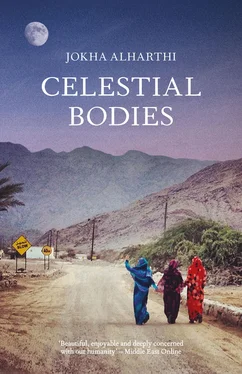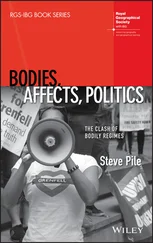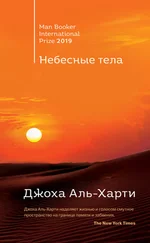Azzan informed Salima that he had accepted the request made by Khalid, son of Emigrant Issa, for the hand of his daughter Asma, and that he had excused himself to the Emigrant’s family for not accepting Khalid’s brother for Khawla, telling them that she had already been reserved for her cousin.
Salima flashed him an angry look. Her cousin who? she snapped. Nasir, that boy we haven’t heard a peep from in more than four years? Who never has asked after us or her? Since when is Khawla reserved? What is this talk? Where is he, this cousin of hers? Out on the streets like a tramp, miserable fellow, somewhere in Canada — and we refuse someone who really wants to marry our girl?
Azzan turned his face away. I have responded to them and there is nothing more to say. If you want to make preparations for your daughter Asma’s wedding and agree with the women in Khalid’s family about the dowry and the arrangements, then go ahead. But Khawla — no.
He threw a wool shawl over his shoulders and went out as he did every night.
Salima walked quietly into the middle room. Mayya was asleep. She picked up the baby, undid her swaddling and began rubbing oil and salt into her reddened navel. The tiny girl opened her eyes and stared at Salima. The baby’s grandmother could not keep back a tear or two as she remembered Muhammad, who had died as a nursing baby. She was trying not to remember Hamad — Hamad whom this baby so resembled, the son she had lost. She didn’t want to remember him at all.
She wrapped the baby up again tightly and settled the little bundle on her lap. She examined her face for a moment and closed her eyes. Opening them, it was not her granddaughter that she saw. She didn’t even see Muhammad or Hamad, her two dear departed ones, nor did she see Azzan’s glum face. Her eyes weren’t taking in the blue paint on the walls or the shelves set into their thicknesses, where the porcelain sat on display. What she saw was her uncle’s house.
Her uncle’s house? No, what she really saw was the thin line where the high thick wall of that fortress met the sky.
How many years had plodded by as she leaned against the kitchen’s outside wall, listening to the slave women quarrelling inside and the slave men’s jokes and shouting on the other side, the children screaming and fighting in the courtyard, the high-pitched screech of her uncle’s wife belting out commands. And no one ever listened to Salima, and no one ever spoke to her.
So many years had passed as she leaned there, against that wall, unseen and unheard, staring at the line where the wall met the sky.
Many times since those days, she had tried to remember what her feelings were as she leant there slumped against the wall. Did she feel any sadness when she learned her father had died? Did she feel any longings for her mother? Was she angry? She didn’t remember any of these things, though she tried. All she recalled was a sun so bright it hurt her eyes and the odour of kitchen smoke everywhere. She did remember one sensation especially well: hunger.
People used to talk, back then, about the impact of the world war, the terrible inflation and all of the unrest among the tribes, but she did not understand what any of it had to do with the way her uncle’s wife stared at her niece’s hands and mouth as the family ate their main midday meal. Ever since her father’s death, when her uncle had insisted on moving her and Muaadh to his home, Salima had forgot what breakfast tasted like. The adults drank coffee and ate dates but she always waited for lunchtime to come.
When they had guests from another tribe, Salima could smell the fragrance of meat grilling, and the broth and freshly baked paper-thin bread as the visiting men ate with her uncle. Then she, her uncle’s children and his wife gathered around the leftovers on the enormous tray that had been prepared for the guests. Usually there wasn’t anything more than a little broth and some bones with hardly any meat on them. Her uncle’s children fought over the remnants of food while her uncle’s wife trained her eyes on Salima’s hand. Salima would feel her hand must be huge every time she reached toward the tray. Her mouth was very big and ugly, she was certain. When there weren’t any guests, lunch was dried sardines that had been pounded and mixed with onion, lemon and water, along with a few dates. Rice was so expensive that only invalids were fed it. She hated the acrid smell of the dried-out sardines but since most of the time she was so hungry that her tummy ached, she ate the mixture anyway.
Yes, hunger. That was what she remembered of her life in her uncle’s home.
The baby’s shrill cry demanded Salima’s attention. She was hungry, of course. Mayya, sang out her mother, get yourself up now, nurse your baby girl.
Mayya struggled upright and managed to nurse her baby until the infant fell asleep. She lay down again, stretching out quietly on her mat. Her mother carried in a big smooth stone, laid it over the lit coals, and a few moments later wrapped it in a towel to preserve its heat while protecting Mayya’s skin from scorching. Mayya exposed her belly and her mother placed the stone there, wrapping her and the stone up together like a package in a tattered old length of fabric. Twice every day for forty days Mayya had to endure the added heat of the stone on her belly so that her middle would not collapse into flabby post-birth wrinkles. The stone did not annoy her half as much as did the tightly wrapped cloth, over her belly and around her body, night and day, for forty whole days, until she was cleansed of her afterbirth and would emerge with a sleek, taut belly.
Entering the room, Asma broke into a smile at the sight of the swaddled stone on Mayya’s middle. I’ll be going to buy the gold, Salima said to her. And the clothes and wedding chest, all for your wedding. Next month.
Asma nodded, smiling to herself, anticipating her own experience of motherhood. Why wasn’t there even one book, among all of the volumes on her shelves, which singled out motherhood as the radiant experience it must be? Had her grandfather, Shaykh Masoud, whose library her mother had inherited, not been interested in motherhood? Or were books in general reticent on this subject? She didn’t know the answer to that one, since she had never seen another library in her life.
Azzan’s head lay in Qamar’s lap, his eyes fixed on the stars glittering in the soft clear desert sky. She was gliding her fingertips along his lashes and brows and flicking off the grains of sand clinging there, putting them in her mouth. He was accustomed to this gesture of hers now, so it no longer startled him. He floated in the ecstasy of her words, captured by her intensity which never seemed to lessen, her zealous attention to house, camels, work and brother. When she suddenly went silent he rubbed his cheek against her hand. Keep talking, I love your voice. She lay down next to him in the sand. Fingers interlaced beneath their heads, together they gazed at the constellation Ursa Minor which was unmistakeable at this time of year.
You speak, whispered Qamar. You hardly ever say anything.
Azzan sighed. But a moment later he did begin speaking. He told her about a long-ago wound that was still alive. His son Hamad.
From birth, Hamad had been a weak and wan-looking baby. His mother expected him to die at any moment, as had her first baby, Muhammad, who had died before he was even two months old. She had Hamad wearing every kind of amulet that she could get a shaykh to prescribe. Azzan lost the hopes he had had for the boy.
But Hamad lived. His tiny body fought hard, resisting the fate of his brother, and he made his way in life — and what life there was in him! So constantly in motion was the boy that he could barely eat or sleep. It was almost impossible to see him still or quiet. He was always scampering around or chattering away.
Читать дальше












